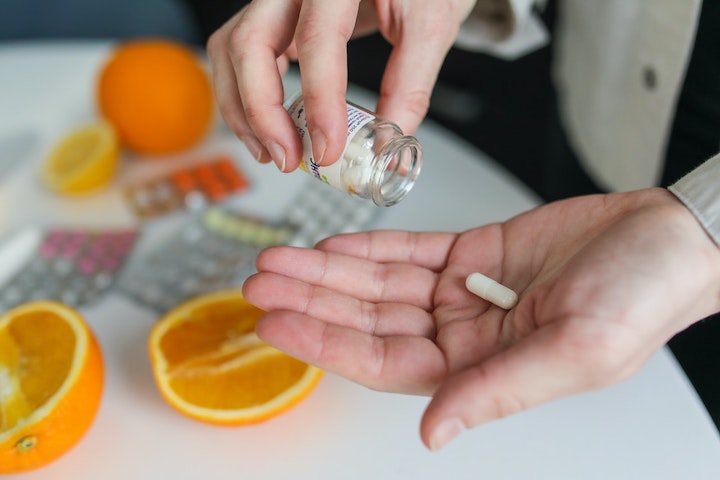Most of us engage in harm reduction strategies every day, without even realising it.
For example, driving on a motorway at high speed is dangerous, so we all wear seatbelts to keep us safe.
Likewise, sitting out in the sun for hours can result in sun damage, so we all wear sun cream.
The premise of harm reduction is that we engage in evidence-based strategies and interventions to keep us safe.
Many argue that the same premise and strategy should be applied when it comes to drug and alcohol abuse.
By simply engaging in prevention strategies, such as needle exchange programmes, community groups and restricting drug flow into prisons, you are much more likely to reduce overall drug use as well as the negative consequences associated with excessive drug and alcohol use.
Harm reduction is an approach to addiction recovery and prevention, which believes that simply reducing an addict’s use over time is a better approach to recovery than cutting their use out completely.
Harm reduction has become a pivotal approach to recovery over recent years, with the Government now introducing a 10-year harm prevention strategy.
Harm reduction incorporates community-driven public health strategies, which includes things such as prevention strategies, health promotion, risk reduction and motivational strategies to try to encourage individuals to reduce the amount of alcohol or drugs that they consume, so that they can live healthier, happier and more purpose-driven and fulfilled lives. [1]
By engaging in harm reduction strategies and by simply managing and reducing an individual’s use of harmful substances, communities are much more likely to reduce and manage the spread of any infectious diseases as well as improve the overall physical and mental health of certain community groups.
You are also more likely to see a decrease in the amount of crime committed in areas and will reduce the stress and pressure put on local health services, including local drug and alcohol rehab and treatment centres.
However, despite the above benefits, many people still argue that simply managing and reducing the use of abusive and harmful substances such as alcohol, cannabis and cocaine is still enabling addicts to continue their use.
Some people argue that by just aiming to reduce the amount people abuse, rather than aim to cut it out together, you are only encouraging them to abuse the substance(s) which is incredibly difficult to moderate and manage, especially considering how difficult addictive substances are to control.
Below are some of the very common arguments and opinions which argue against harm reduction strategies:
However, despite these opinions, numerous studies have now shown that actioning a harm reduction strategy can have a positive impact on your community and will go a long way to create a more positive, healthy and safe environment.
There is no denying that drug and alcohol addiction is a growing problem, which we are a long way from solving. So, is a harm reduction strategy the way forward, or shall we still aim for and promote total abstinence?
To learn more about how whether harm reduction can help you beat addiction, give our team a call on 0800 140 4690

Many people argue that harm reduction strategies are necessary because more and more people are abusing drugs, and thousands of people up and down the country have to attend drug and alcohol rehab treatment plans in order to recover.
There is no denying that drug and alcohol addiction is a growing problem, which we are a long way off from solving.
For years rehab centres have aimed for total abstinence. Yet, thousands of people relapse each year after receiving treatment and aiming for total abstinence.
The consequences of addiction on the community are huge.
Not only does drug and alcohol abuse cost the NHS and local healthcare services millions each year, but it is now putting a huge strain on the NHS and other healthcare resources, which are already overstretched and underfunded.
Drug and alcohol buse can cause a number of health problems, and overdosing on addictive substances such as heroin, cocaine or alcohol can result in life-altering health issues or eventually death.
Abusing drugs and alcohol also has a huge impact on your local community, as people who abuse drugs and alcohol on a regular basis are a lot more likely to engage in antisocial behaviour than those who do not engage in drug and alcohol abuse.
Abusing drugs and alcohol also has a huge impact on your family and friends.
In fact, those with a family member or parent who frequently abuse drugs and other substances are also a lot more likely to abuse drugs or alcohol themselves as they grow up.
By incorporating harm reduction strategies into your recovery or your own community, you are meeting people where they are. Instead of asking people to come to you and abstain from use, you are accepting that this is a huge ask, and compromising with them for the time being.
In a sense, you are accepting that they have an addiction issue and are asking them to compromise and try to recover in a safe and monitored way at their own pace.
Discover more about harm reduction and its role in drug and alcohol rehab by calling us on 0800 140 4690

The Government has now created a 10-Year Harm Reduction Drug Strategy in an attempt to create a healthier, happier and more productive society.
This strategy has been implemented after a recent study [2] carried out by Gov.UK found that drugs are the main driving cause of nearly 3,000 deaths each year across just England and Wales.
Due to this, the UK Government is now determined to reverse these issues and improve people’s lives through harm reduction strategies. Below are the various different ways the UK Government hopes to implement their harm reduction strategy.
If you are currently struggling from a drug or alcohol addiction and want more information on harm reduction strategies, then get in touch with a member of our team by calling us on 0800 140 4690

Below is a list of the harm reduction strategies that the UK Government hopes to implement over the next 10 years.
By implementing these strategies, the Government hopes to attack certain stages of the supply chain, reduce the level of violence on the streets, and reduce the amount of drugs smuggled and consumed inside prisons.
The Government believes that they can achieve this by implementing the following strategies:
There are a number of other strategies that the UK Government hopes to implement over the next few years.
A study carried out by the PMC [3] also looked into other harm reduction and prevention strategies, some of which are listed below.
The study has confirmed that school-based programmes remain one of the most effective ways we can reduce the amount of harm caused by drug and alcohol addiction.
A lot of people who suffer from drug and alcohol abuse become addicted to drugs and alcohol whilst they are children or teenagers.
According to recent national surveys, 1 in every 8 children have drank alcohol in the past year, including children aged 16 and under.
Whilst a lot of this use might seem harmless, simply being exposed to alcohol and drugs at such a young age means that these children are statistically more likely to suffer from drug and alcohol abuse and troubles in the future.
Other studies have found that 70% of all excessive drinkers are holding down a full-time job. Whilst the belief might be that those who abuse alcohol or drugs struggle to hold down a full-time job, this is simply not the case.
Functioning alcoholism accounts for a lot of addiction across the UK, which means that a significant proportion of the UK population are classified as alcoholics whilst still being able to hold down a job and live a relatively normal day-to-day life.
However, whilst these individuals are still able to contribute to society and the economy whilst holding down a full or part-time job, they are still having a huge impact on their community, their workplace and their colleagues.

Nicotine replacement is another well-documented [4] way of reducing harm caused by drug and alcohol abuse.
There is a wide range of options available to individuals who want to reduce their use, including both over-the-counter and prescription products.
This includes things such as patches, gum sprays, inhalers, lozenges and tablets.
Whilst some people find these options really productive and helpful, others argue that they are only encouraging addiction, as opposed to helping them overcome their physical dependence altogether.
Some argue that these types of interventions should only be used when someone is proving incredibly difficult to treat, although this should be supported with other types of treatments such as therapy and behavioural intervention.
Opioid substitution [5] is another highly effective and popular harm reduction strategy.
These substitutions include substitutions for drugs such as heroin, oxycodone, oxycontin, and morphine.
Under medical supervision, these substitutions will be administered as a way of helping individuals withdraw in a safe and steady way, as well as ensuring that they do not engage in riskier behaviour and abuse, such as injecting themselves with dirty needles.
This will hopefully reduce the harm associated with drug and alcohol abuse, including criminal activity, the risk of contracting HIV and other diseases, as well as the drug-related death that is so common with those who abuse opioids on a regular basis.
However, opioid substitution remains controversial across the country, with many arguing that doing so is simply encouraging this type of abuse rather than discouraging individuals to withdraw from taking opioids and abstain totally.
Lastly, needle exchange programmes are another hugely popular harm reduction strategy used around the world.
This strategy aims to help to reduce the amount of harm that is associated with taking drugs and contracting certain diseases such as HIV or Hepatitis.
This is particularly common among those who inject drugs into their system, such as heroin users and certain types of cocaine.
Needle exchange programmes have been around since the 1980s and have proven incredibly popular and effective ever since. A study carried out in 2001 [6] concluded that these needle exchange programmes have proven to be safe, effective and highly cost-effective.
Not sure if a harm reduction strategy is right for you? Talk it over with our experts on 0800 140 4690

Harm reduction is more controversial than other drug and alcohol treatment and recovery strategies as there are a lot of differing opinions and perspectives when it comes to how individuals should recover safely.
Despite common beliefs, more and more communities and rehab facilities tend to favour harm reduction over complete abstinence when it comes to recovery from drug and alcohol rehab.
Some organisations advocate for an abstinence-only approach to recovery, which means that they are to withdraw from their addiction substance(s) and should never use them again, under any circumstances.
By doing so, you risk your overall recovery every time you relapse.
Other people simply argue that enabling a harm reduction approach is simply enabling drug abuse, which then becomes an issue with some people’s morals and values.
Other people fail to understand or get behind the legality of certain harm reduction strategies, as abusing drugs is illegal and encouraging this use should not be allowed and might be seen as a criminal offence in itself.
There are now a number of political groups which believe that certain harm reduction strategies such as needle exchange programmes and opioid or nicotine replacement programmes should be illegal and are unwanted.
To learn more about harm reduction strategies and how they measure up against abstinence-based treatment, call our experts on 0800 140 4690

There are a lot of negative opinions when it comes to harm reduction.
However, it is important to accept that many countries, communities and charities are now adopting a harm-reduction approach to their treatment and recovery plans.
Therefore, it is important to understand how harm reduction works and try to improve your mindset regarding it.
You should try to be aware of your potential biases surrounding harm reduction.
You should try your best to listen to other people’s opinions and thoughts about harm reduction and work to keep an open mindset.
You should try to talk to individuals who adopt harm reduction strategies and try to ask questions about their approach and beliefs in harm reduction and its effectiveness.
There will be a number of harm reduction treatment training sessions in your area, as well as professional treatment centres and programmes.
You should try to attend a meeting or talk to a trainer who might be able to enlighten you on how harm reduction works and why so many people are now adopting a harm reduction approach to recovery.
Make sure that you get the help you need to overcome addiciton by giving our team a call on 0800 140 4690

If you are addicted to drugs or alcohol then you might need to attend drug and alcohol rehab in order to successfully recover.
If you are physically addicted to a substance, then you will need to undergo a detox in order to successfully withdraw and begin recovery.
Once you have completed this detox, you will then be in a position to focus on the psychological side of your addiction.
This will usually involve undergoing a range of different addiction rehab therapy techniques, including cognitive behavioural therapy, holistic therapy, motivational interviewing, family therapy and much more.
It is important to remember that if you are able to complete a drug and alcohol rehab treatment plan, then once you leave you will still need to continue your treatment via aftercare and support services.
This will likely include a support group such as Alcoholics Anonymous, Narcotics Anonymous, [7] SMART meetings and potentially ongoing outpatient rehab treatment.
Discover all the benefits of addiction treatment for yourself by calling our referral team on 0800 140 4690

Harm Reduction International [8] advocates for an inclusive definition of harm reduction and holds annual conferences around the world, which help to spread the principles of harm reduction as well as the benefits of incorporating a harm reduction strategy into treatment plans.
Harm Reduction International is a not-for-profit NGO which is passionate about community health and reducing drug and alcohol abuse.
They create strategic plans every three years [9] which set frameworks and objectives to help communities and rehab treatment centres engage with harm reduction strategies.
A big part of Harm Reduction International’s objective is to remove and overcome the stigma surrounding harm reduction across the UK and the rest of the world, particularly when it comes to needle exchange programmes and opioid withdrawal substitutes.
They believe that these stigmas create a barrier to many harm reduction treatment plans, which they believe is a barrier to basic health and human rights.
They argue that the majority of drug users lack access to harm reduction treatment strategies, which is why many people struggle to overcome their addiction and if they do, only go on to relapse at a later date.
Start your recovery journey today by calling us on 0800 140 4690

If you are struggling with addiction and are battling your way through your recovery and treatment, then you want to stand the best chance possible of recovering for good and not relapsing in the future.
For some people, harm reduction might be the best way of recovering. For others, abstinence is the best way forward if you want to achieve full recovery.
If you want more information on how to recover from a drug or alcohol addiction, then talk to a member of the team at Rehab 4 Addiction.
Our team of specialists are on hand to provide you with all of the information necessary and are able to advise you on the best course of action for you.
Whilst everything you tell us is completely confidential, we will take your specific addiction and circumstances into account in order to advise you with the right information that will help you to recover successfully.
Rehab 4 Addiction does not offer specific health advice and we are not a remote clinical unit or service, meaning that we do not treat addictions.
However, we are able to listen, advise and pass your information on to partnering rehab clinics who will be able to provide you with medical advice and care, including detox and therapy sessions.
If you want more information on how you might be able to recover from an addiction, then call our team today on 0800 140 4690
[1] https://www.samhsa.gov/find-help/harm-reduction
[2]https://assets.publishing.service.gov.uk/media/629078bad3bf7f036fc492d1/From_harm_to_hope_PDF.pdf.
[3] https://www.ncbi.nlm.nih.gov/pmc/articles/PMC3928290/#R29
[4] https://www.ncbi.nlm.nih.gov/pmc/articles/PMC344271/
[5] https://pubmed.ncbi.nlm.nih.gov/14769623/
[6] https://pubmed.ncbi.nlm.nih.gov/16809167/
[7] https://meetings.ukna.org/
[9] https://hri.global/wp-content/uploads/2022/10/HRI_StrategicPlan_V5.pdf